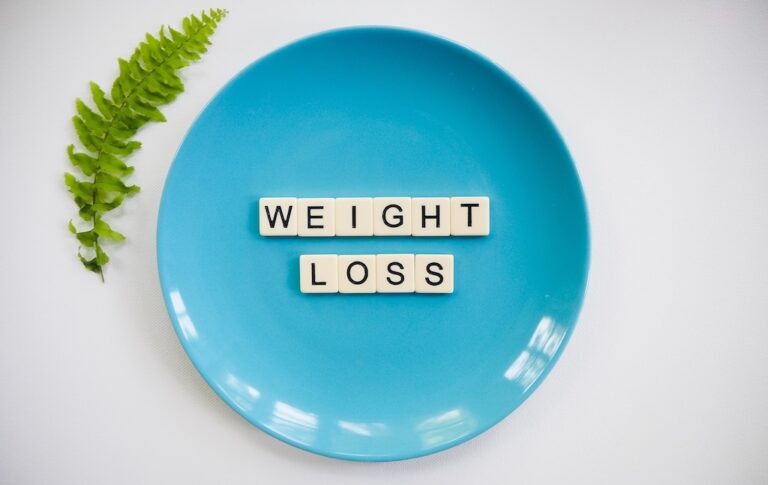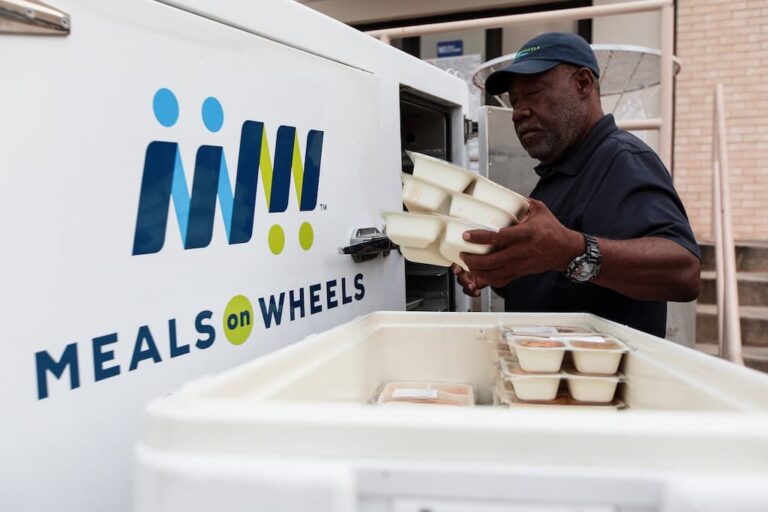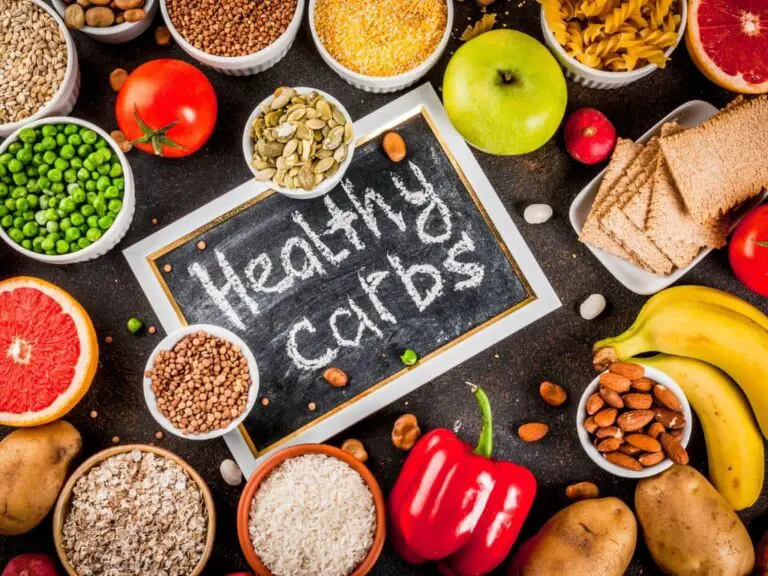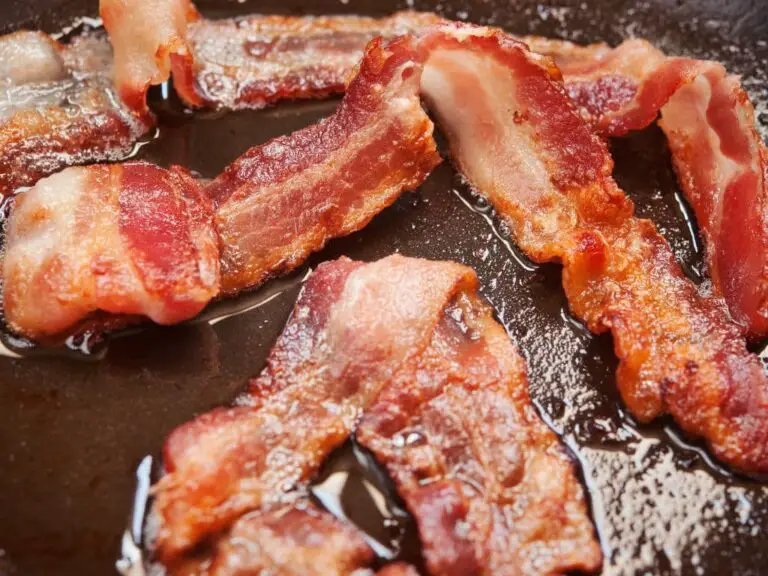Is Weight Watchers a 1200 Calorie Diet?
As we age, our metabolism changes and it becomes harder to maintain a healthy weight. For seniors, a 1200 calorie diet may be recommended to help lose weight and improve health. Weight Watchers is a popular program that helps people lose weight by following a points system.
Weight Watchers is not a 1,200 calorie diet. The Weight Watchers program does not solely focus on calorie counting, but rather on assigning points to different foods based on their nutritional value. These points take into account factors such as saturated fat, sugar, and protein in addition to calories.
While it is true that a 1,200 calorie day of eating could be achieved on Weight Watchers, the points allocated for this calorie count would vary depending on the specific plan followed.
That said, how many Weight Watchers points is 1200 calories? Weight Watchers points are not equivalent to calories, so there is no direct answer to the question “how many Weight Watchers points is 1200 calories?” The Weight Watchers program assigns points based on the value of saturated fat, sugar, protein, and calories in food.
Weight Watchers currently offers three different plans – Purple, Blue, and Green – each with its own set of zero-point food options and a different maximum daily points allowance.
The current points system is designed to prioritize healthier, unprocessed, and natural foods, which are often assigned fewer points or even zero points.

What Is the Weight Watchers Diet?
The Weight Watchers Diet, now known as WW, is a popular weight loss program grounded in current nutrition and behavioral science. It adopts a comprehensive approach to weight loss, focusing not just on calorie control but also on an individual’s nutritional needs, eating habits, and lifestyle.
The program uses a unique scoring system, known as PersonalPoints™ or Points, which calculates a food’s nutritional profile rather than just its caloric value. This system takes into consideration factors such as protein content, fiber, added sugars, and types of fats. Each member of the program is provided with a customized Points Budget according to their metabolic rate, identified through an initial assessment. The Budget determines the amount and type of food they can consume to ensure a healthy and sustainable weight loss.
One of the remarkable features of the Weight Watchers Diet is its flexibility. Unlike many restrictive diets, WW programs allow all foods, emphasising portion control and balanced eating. When participants exhaust their Points Budget, they can still consume ZeroPoint™ foods, which are considered nutritious and do not require tracking or measuring. Often these are lean proteins, fruits, and vegetables.
The program prioritizes behavioral changes, promoting mindful eating and tracking nutritional intake as essential components of effective weight management. Members can easily track their food, water, activity, and sleep through a dedicated app, which also provides thousands of recipes and a restaurant database. To foster a supportive atmosphere, the program offers 24/7 access to an online community network known as Connect and additional support through coach-led workshops (both in-person and virtual) for more personalized guidance.
In WW’s eyes, physical activity complements nutrition for achieving weight loss goals. The program encourages members to engage in activities they enjoy, rewarding them with additional Points to their Budget for every physical activity they do. Importantly, it is designed to accommodate various dietary choices, with a vast suite of vegan and vegetarian-friendly recipes available.
Overall, the Weight Watchers Diet seeks to provide a comprehensive approach to weight loss that goes beyond calorie-counting, encouraging sustainable changes in diet, physical activity, and mindset towards a healthier lifestyle.
What Is a 1200 Calorie Diet?
A 1,200-calorie diet is a low calorie diet that restricts daily caloric intake to 1,200 calories. It is often recommended by healthcare providers as a strategy for weight loss. This diet is considered low calorie as it provides significantly fewer calories than what most adults need to maintain their weight. Typically, individuals are advised to reduce their calorie intake by 500-750 calories per day for weight loss, and a 1,200-calorie diet is at the lower end of this range for women.
Low calorie diets, including the 1,200-calorie diet, are commonly used for short periods to promote rapid weight loss. In clinical settings, such as weight loss centers, they are often supervised by healthcare professionals. However, they have also gained popularity among the general public and are offered by weight loss coaches, personal trainers, and dieting websites.
The 1,200-calorie diet typically emphasizes the consumption of “low calorie,” “fat-free,” and “reduced-fat” foods to help keep calorie intake low. Calorie counting is often involved to ensure that individuals stay under their daily limit. While this type of diet may result in initial fast weight loss, research suggests that low calorie diets are not effective for long-term weight maintenance.
It is important to note that 1,200 calories per day is generally considered too few for the majority of adults. This calorie level may not provide adequate nutrients and energy for optimal health and can potentially lead to nutrient deficiencies. It is advisable to consult with a healthcare professional or registered dietitian before embarking on a low calorie diet to ensure that it is appropriate for individual needs and goals.
Are Weight Watchers and the 1200 Calorie Diet the Same Thing?
Weight Watchers and the 1200 Calorie Diet are not the same thing. The main difference between Weight Watchers and the 1200 Calorie Diet is that Weight Watchers emphasizes a comprehensive approach to weight loss based on personalization, behavioral science, and a point system that accounts for nutritional values of food, whereas the 1200 Calorie Diet simply limits the dieter to consuming no more than 1200 calories per day.
Weight Watchers is a comprehensive weight-loss program that uses a proprietary points system based on nutritional factors such as added sugars, fiber, protein, and the types of fat present in each food. This system, called PersonalPoints, is tailored to the unique metabolic rate of each individual. Instead of focusing solely on calorie count, this system encourages members to consume nutritionally balanced meals.
Moreover, Weight Watchers emphasizes behavioral changes and provides 24/7 support, community-led workshops, and an easy-to-use app that includes customised plans, trackers for food, water, activity, sleep, and weight, a barcode scanner for easier grocery shopping, and a comprehensive database of recipes and restaurants. Weight Watchers also encourages you to stay active in a way you enjoy, rewarding you with more Points in your weekly Budget.
On the other hand, the 1200 Calorie Diet is a traditional weight-loss diet that restricts total caloric intake to 1200 calories per day. This diet does not differentiate between nutrient-rich and nutrient-poor foods or take into account individual metabolic rate or other factors such as activity level or sleep. The 1200 Calorie Diet revolves around counting calories of every food intake rather than their nutritional value and does not necessarily involve a holistic support system or app-based tracking like Weight Watchers.
That said, Weight Watchers recommends a diet of at least 1200 calories for women to avoid decreases in metabolism even when one is trying to lose weight. This number of calories, however, is not tracked through traditional calorie counting but through the point-based system that is factored based on the participant’s activity level, age, and gender.
The point system is formulated not solely on the caloric content of the food but also takes into consideration the carbohydrate, fiber, protein, and fat content of foods.
By doing so, Weight Watchers aims to promote the consumption of healthier, nutrient-rich foods by assigning lower points to them compared to less nutritious options. A 1200-calorie Weight Watchers diet can have a range of points values, all depending on the foods consumed.
Weight Watchers also designates a range of foods with 0 points, including fresh fruits and non-starchy vegetables, as well as diet soda, broth, and seltzer among others. These ‘free foods’ can be consumed without affecting the participant’s daily point count, encouraging the intake of these foods due to their high water, fiber, and nutrient contents that aid in feeling full whilst providing necessary nutrients.
The minimum point allotment per day stands at 26, with an additional 49 points available for use throughout the week, and the possibility to earn more points through increased physical activity. This adaptable point system allows for an occasional treat without jeopardizing the diet plan.
In essence, Weight Watchers promotes a 1200 calorie diet as it aids in a balanced, slow, and steady rate of weight loss while emphasizing the importance of healthy eating and regular exercise. The point system allows for flexibility and personal tailoring, which encourages adherence to the diet plan by maintaining motivation and curbing food cravings.
Who Should Consider the Weight Watchers Diet?
The Weight Watchers Diet may be considered by individuals seeking a flexible and sustainable weight loss program with a strong focus on community support. The program is ideal for people who prefer a balanced approach to weight loss that allows the enjoyment of all foods, in moderation. It is suitable for people willing to track their food intake using the Weight Watchers Points system, which assigns points to all foods and beverages based on their nutritional value.
Those with specific dietary restrictions, looking for a customizable program, may also benefit from Weight Watchers. The plan can be tailored for vegans or individuals with food allergies as they can choose how they utilize their points.
Weight Watchers can equally be considered by people who are motivated by the idea of community support. The provided Weight Watchers app facilitates interaction with fellow members and has a wealth of resources to aid and encourage healthier lifestyle changes.
However, individuals who struggle with self-control around food or who can be easily tempted into overeating even healthy foods, may find Weight Watchers challenging. Conversely, individuals who prefer a set meal plan may find the flexibility of the diet overwhelming. Lastly, the Weight Watchers program, with its associated costs, may not be suitable for those on a limited budget.
Does Weight Watchers Work For seniors?
Weight Watchers can be a helpful and effective program for seniors looking to lose weight. Various studies have repeatedly found it to be one of the most successful commercial weight loss programs. The program is not solely aimed at younger audiences, but has a structure that can adapt to people of various age groups, including seniors.
The Weight Watchers Freestyle program, launched in 2018, is particularly valuable for seniors. It includes a simplified point system, minimizing the need for rigorous calorie counting. The Freestyle program is designed around a list of over 200 “free” foods, which have a point value of zero and do not need to be tracked. This includes many healthy foods that can be beneficial for seniors such as skinless chicken or turkey breast meat, eggs, fish, unsweetened Greek yogurt, fruits and most vegetables.
In addition to these “free” foods, the Weight Watchers program allocates daily and weekly point allowances that can be used for other food items. This flexibility can accommodate seniors who may have special dietary needs or preferences. A key advantage for seniors is the program’s focus on eating real food in reasonable quantities, rather than requiring special food purchases or liquid shakes.
The Weight Watchers program also has various approaches to suit different user preferences. Seniors who prefer face-to-face interaction and accountability can choose to attend physical meetings, while those who are more tech-savvy can opt to use the Weight Watchers app and online support groups. In some cases, the costs of these programs may be covered by Medicare supplement or Medicare Advantage plans.
While the Weight Watchers program can aid weight loss and promote healthier eating habits, it is recommended that seniors consult with their doctors before starting any weight loss program. This is to ensure that any specific dietary requirements or medical considerations are taken into account while following the program.
The structure, adaptability and flexibility of the Weight Watchers program make it a practical and effective choice for seniors looking to manage their weight and enhance their health. It allows them to enjoy various foods while being directed towards healthier choices, and promotes an active lifestyle tailored to their individual needs.
However, its success is dependent on one’s commitment to the program and willingness to make the necessary lifestyle changes it suggests.
Who Should Consider the 1200 Calorie Diet?
The 1,200-calorie diet may be considered by individuals who are seeking rapid, short-term weight loss and have been medically advised to do so. The diet is commonly used in clinical settings, usually under medical supervision, to promote fast weight loss. These individuals may include those who are obese or morbidly obese and whose health might benefit far more from the quick loss of weight than from the potential negatives of a low-calorie diet. This may also include individuals preparing to undergo a bariatric surgery that requires rapid weight loss in a limited time period.
It’s worth noting that the diet is less suited to most adults, including smaller women. On average, adult women need around 2,000 calories per day to maintain their weight, while men need around 2,500, making 1,200 calories quite low. Reducing calorie intake too drastically can lead to negative health effects like micronutrient deficiencies, fatigue, and gallstones. Long-term adherence to such low-calorie diets can also cause metabolic changes that prevent weight loss, increase appetite, and lead to greater chances of weight regain.
Anyone considering the 1,200-calorie diet or any drastic drop in caloric intake should speak with a qualified healthcare provider beforehand. It is always recommended to approach weight loss in a manner that is sustainable and health-focused, and to seek the guidance of a reputable medical professional before making significant changes to one’s diet.
What Is the Average Weight Loss on Weight Watchers?
The average weight loss on Weight Watchers is typically 1-2 pounds per week. This figure reflects a healthy and sustainable rate of weight loss, generally endorsed by health professionals. The WW program follows a comprehensive approach to weight loss, encompassing not just diet, but also exercise and behavior modifications.
Members have reported successful weight loss on the program, often continuing their journey even after meeting their initial weight loss goals. Individual results may vary based upon factors like initial weight, lifestyle, compliance to the program, and individual metabolic rates.
The success of WW is attributed to its focus on developing sustainable habits that can help individuals reach their health and wellness goals. However, there’s no single, universal strategy to succeed with the program as it largely depends on individual commitment and effort.
Frequently Asked Questions
-
Is 800 calories a day enough?
Are The 800-Calorie Diets Safe? It isn’t. It is not. Women and men need about 2000 and 2500 calories respectively to keep their weight at the same level. This is not an exact number. Your recommended daily caloric intake will depend on your weight, age, height, and level of activity (23).
-
Why am I not losing weight eating 1000 calories a day?
You can lose weight by eating less than 1,000 calories per day, for example. Fakhoury stated that if you don’t eat enough your body will become starved and won’t lose weight. Your body needs energy to stay alive.
-
What can I eat when hungry on a diet?
Whole-grain popcorn, whole-grain puffed and popcorn, as well as breads, cereals, pasta, and cereals are all good options. Before you eat, try vegetable salads and broth-based soups. Add lean meats and poultry to entree salads. Serve as a dessert or add fruit to your salads
-
Is 1200 calories a day too low?
One-two hundred calories is too much for many people. It can cause side effects such as dizziness and extreme hunger. If you are looking for long-term weight reduction, then a diet of 1,200 calories can be disastrous.
-
Which meal is best to skip?
One behavior that has been studied is skipping breakfast or other meals. This can have an impact on weight and diet quality. Evidence suggests that skipping breakfast can reduce total daily caloric intake. Some weight loss recommendations recommend skipping breakfast, or intermediate fasting, as one option.
-
Is Weight Watchers a 1200 calorie diet?
Weight Watchers and most other regimented diets are based on the same 1,200 calorie intake. However, this is hidden behind a points system to make it feel less like you’re calorie counting.
-
Can I eat as much salad as I want and still lose weight?
Salad is a popular food that can help you lose weight. There are many ways to make a salad. Salads contain a lot of fibre, essential vitamins, and minerals. These can be added to your diet for weight loss and help ensure that you get the most nutrients.
-
How many carbs should I eat on a 1200 calorie diet?
The National Academy of Medicine recommends that adults consume 45-65 percent of their daily carbohydrate intake. This would be 540-780 calories, or 135-195 grams for a 1,200-calorie meal.
-
Are scrambled eggs good for weight loss?
Eggs can be low in calories and high in nutrients. Eggs can help with weight loss, particularly if they are incorporated into a healthy diet. Eggs may increase metabolic activity, and improve feelings of fullness according to research.
-
How many calories per day is considered starvation?
A starvation diet is a daily intake of 600 calories or less. However, any lower than the recommended intake doesn’t give the body the energy it requires to operate properly. Because your metabolism is affected by low calories, a starvation diet won’t help you lose weight.
-
What happens when you don’t eat enough calories?
You may not be getting sufficient calories. A variety of health problems can be caused by nutritional deficiencies, including anemia, low thyroid function, and infertility.
-
How much weight will I lose on 1200 calories a day?
The average loss of weight that people experience on the 1200-calorie diet is one to two pounds each week.
-
What are the most filling low calorie snacks?
Trois crackers with cheese and/or hummus Amy says that the fibre provides fiber and the cheese gives you calcium and protein. You can get around 60 calories if you choose 25g reduced-fat Cheddar.
-
What foods help burn belly fat?
Research shows that eating high-protein foods like eggs, dairy, fish, seafood and legumes results in a lower abdominal fat and increased satiety. In order to lose body fat, it is important that you eat fiber-rich meals.
-
Can a woman lose weight on 1200 calories a day?
People need more calories than they consume every day. People who reduce their daily intake by 1,200 calories per day can lose weight. For people with obesity or overweight, this can prove to be helpful.






